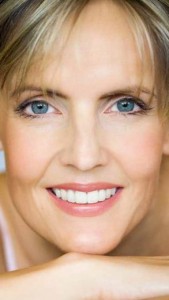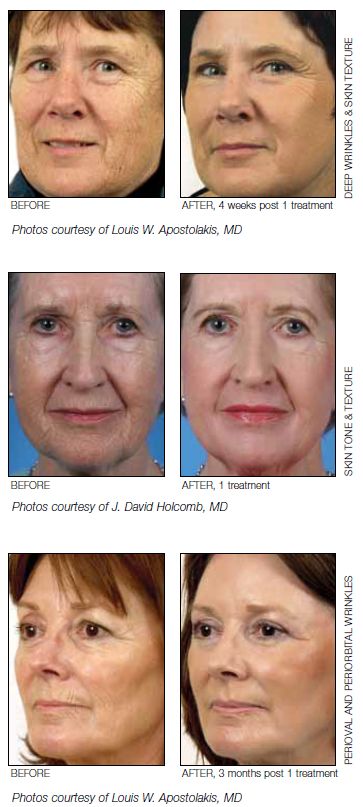Safe and effective deep skin resurfacing for unparalleled wrinkle reduction and improvements in skin tone and texture.
 What is a Laser Peel?
What is a Laser Peel?
As we age, the effects of sun damage and environmental pollutants take their toll on our skin, creating wrinkles and pigment irregularities, especially on our faces. A Laser Peel can be very successful at reducing or eliminating these conditions, and in fact is the best way to address the problematic lines that occur around the mouth and eyes. Though there are several different types of lasers used to perform peels, the Contour TRL is widely regarded as the safest, most effective laser available.
How does a Contour TRL Laser Peel work?
Contour TRL safely removes a layer of skin to a depth determined by your physician. The depth of treatment will depend on the skin condition, your desired outcome and expectation for downtime. Because Contour TRL can affect tissue with micron precision, your physician can treat your skin with the exact amount of energy needed – no more, no less. Treating skin with a laser stimulates the growth of new collagen, which improves the skin’s thickness and resilience. The skin surface will also re-grow with fresh, healthy cells, which will give your skin a younger rejuvenated appearance.
What conditions can be treated with Contour TRL?
- Deep wrinkles (even in difficult to treat areas like around the mouth and eyes)
- Scars
- Solar spots
- Actinic Keratoses
- Poor skin tone/texture
What areas of the body can be treated?
Several areas of tho body can be treated, though the most commonly treated areas are the face and neck. Laser skin peels are often combined with traditional plastic surgery procedures to further improve results. You should discuss your needs with your physician.
How many treatments will I need?
Because Contour TRL is capable of deep laser peels, excellent results are typically achieved after one treatment.
What will happen during the procedure?
Your skin will be cleaned in the treatment area and your eyes will be protected with safety shields. The physician will position the laser hand-piece above the skin and will hold it in place as the computer-guided scanner moves the laser beam around the treatment area. Depending on the size of the area being treated, the procedure usually lasts 15 to 30 minutes.
Will it be uncomfortable?
Tho comfort level of laser resurfacing varies from patient to patient and depends largely on the depth of treatment. For shallow treatments, the procedure is often tolerated with the use of a topical anesthetic. For deeper treatments, your physician may administer a subcutaneous local anesthetic.
What should I expect immediately after the treatment?
Immediately following the procedure you may experience redness and a sensation resembling sunburn. Swelling may also occur in the treated areas. Your physician will advise you on specific after-treatment care recommendations, which may include analgesics and application of an ointment to keep the skin moist.
How long will it take to recover?
Complete healing will depend largely on the depth of treatment. Healing times for shallow treatments are typically 3-4 days before patients resume normal activities. For deeper treatments, you should discuss realistic expectations for recovery with your physician.
What aftercare do I need?
You may be given skin care products and instructions on how to use them. Your skin will be sensitive to ultra-violet light after the procedure, so you must avoid direct sun exposure until fully healed. It is recommended that you always use some level of solar protection to avoid sun damage and premature aging of your skin.
When should I expect results?
The top layer of your skin will re-grow and can be covered with makeup in about one week, at which time you will see noticeable improvements in your skin’s texture, tone and wrinkle appearance. Deeper laser treatments also stimulate the growth of new collagen over the next 4 to 6 months. During this time, the skin may show increasing improvements in tightness and resilience.

